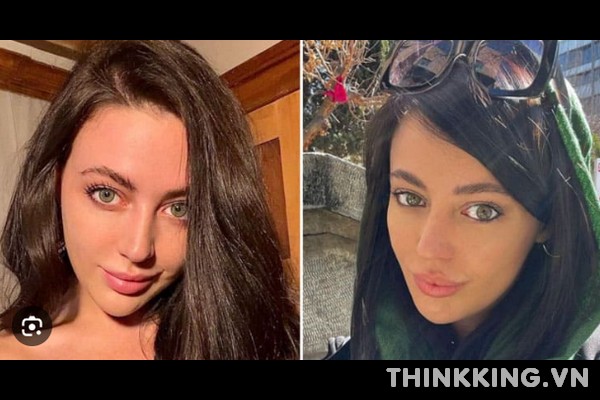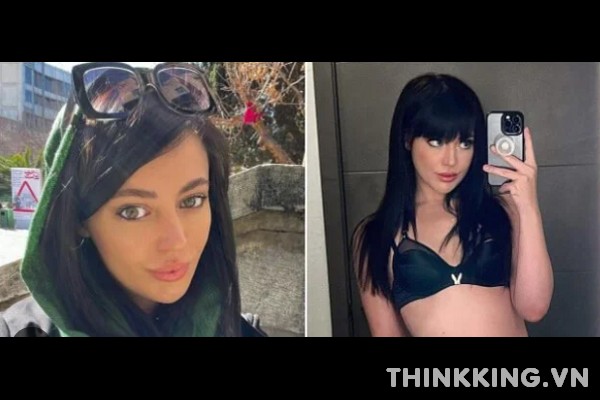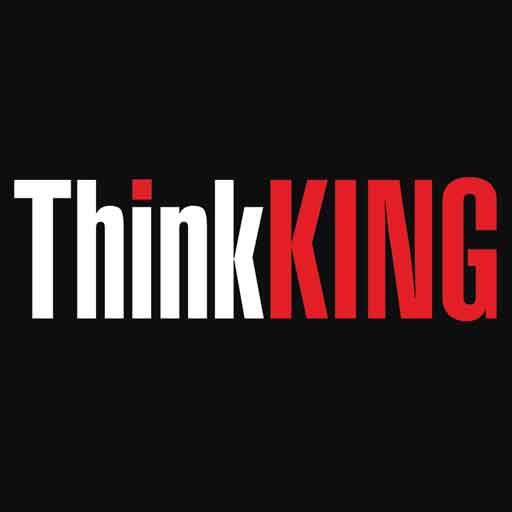[Watch Video] Iranian Whitney Reddit 202 Video Viral On Instagram
Discover the intricate dynamics of social media influence and activism in our latest article on Thinkking.vn, which delves into the “Iranian Whitney Reddit 202 Video That Went Viral On Instagram.” The piece explores the controversial journey of Whitney Wright, whose “iranian whitney reddit 202 Video Viral on Instagram” became a litmus test for the power of images and the responsibilities of digital influencers. We dissect how the “[Watch Video] iranian whitney reddit Instagram Video” incident sparked global conversations about cultural representation and the ongoing struggle for women’s rights in Iran. Join us in reflecting on the implications of the “iranian whitney reddit Video Viral on Instagram” and what it means for the future of celebrity involvement in activism.

I. Unraveling the Controversy: Whitney Wright’s Iranian Expedition
In a world increasingly shaped by the power of social media, Whitney Wright’s Iranian sojourn ignited a firestorm that burned through the digital landscape. The spark? A series of videos, including the notorious ‘iranian whitney reddit 202 Video Viral on Instagram,’ depicting the American adult film star’s experiences in Iran. These clips, which ricocheted across platforms, especially Reddit and Instagram, became a hotbed of controversy, raising questions about cultural sensitivity and the responsibilities of influencers.
Whitney Wright, known for her notoriety in the adult film industry, suddenly found herself cast in a different light, as the central figure in a narrative far removed from her usual milieu. The ‘iranian whitney reddit instagram Video’ not only catapulted her into the global spotlight but also into a contentious debate about the intersection of celebrity and politics. With each share and like, Wright’s personal brand underwent a transformation, as she was scrutinized not just for her profession, but for her political awareness and cultural understanding.
The cultural clash at the heart of this uproar surrounds Iran’s strict hijab laws—a symbol of the nation’s control over women’s bodies and choices. Wright’s videos, intended or not, thrust her into the center of an ongoing discourse on women’s rights and the Western gaze. The reactions to her content underscored a complex dialogue about respect, appropriation, and the role of the outsider in a society grappling with its own intense struggles for freedom and representation. Wright’s Iranian expedition, captured and shared with the world, became a canvas on which broader issues of cultural conflict and global activism were vividly painted.
II. The Social Media Storm: From Reddit to Instagram
Whitney Wright’s trip to Iran, documented and disseminated across social media, became the epicenter of a tempest that swept through the digital domain. The ‘iranian whitney reddit Video Viral on Instagram’ circulated rapidly, as netizens from various corners of the world engaged in a complex dialogue about the implications of her content. While some viewers consumed the visuals with detached amusement, others, particularly Iranian dissidents, voiced their discontent loudly and clearly. These individuals, who have long fought against the systemic oppression within their homeland, saw Wright’s portrayal as an oversimplification of their plight, potentially undermining their struggle for freedom and human rights.
As the videos permeated through Reddit, a platform known for its unfiltered discourse and passionate communities, the ‘iranian whitney reddit instagram Video’ stoked a fury that is emblematic of the Reddit rage phenomenon. Threads burgeoned with heated debates, as users dissected Wright’s intentions, the potential impact on Iranian societal issues, and the broader implications for Westerners engaging with contentious political environments. The forum’s reaction underscored the power of social media to act as a crucible for public opinion, where outrage can be both amplified and echoed in a chamber of global voices.
Instagram, where the ‘Iranian Whitney Reddit 202 Video That Went Viral On Instagram’ found its initial audience, became a battleground for the war of perception versus reality. Wright’s portrayal of Iran, through the curated lens of Instagram’s aesthetics, clashed with the lived experiences of many Iranians. The stark dichotomy between the glamorous portrayal of her travels and the harsh realities faced by many in the country sparked a conversation about the authenticity and responsibility of influencers when portraying foreign cultures. This Image War on Instagram raised critical questions about the ethical implications of travel blogging in politically sensitive contexts.
The social media storm that ensued from Reddit to Instagram highlighted the nuanced dynamics of global digital engagement. It revealed the tension between the right to personal expression and the impact such expressions can have on broader societal issues. As the story of Whitney Wright’s Iranian expedition unfolded, it served as a case study in the responsibilities that come with a connected, yet divided, world.

III. The Backlash: Politics, Propaganda, and the Star
Whitney Wright’s Iranian adventure quickly spiraled from a personal journey into a polemic saga, as the ‘iranian whitney reddit 202 Video Viral on Instagram’ faced backlash, becoming a lightning rod for criticism. Wright was accused of whitewashing the serious human rights issues in Iran, with critics claiming her content inadvertently served as propaganda, glossing over the country’s authoritarian regime and the ongoing struggle of its people, particularly women. This accusation of trivializing a profound situation through seemingly innocuous posts stirred a debate about the inadvertent role social media can play in diluting critical political realities on the world stage.
The debate intensified as the conversation pivoted to Iran’s human rights record, with many pointing out that the country’s strict laws and customs, particularly regarding women’s rights, were in stark contrast to the liberties Wright appeared to enjoy as a Western visitor. Her posts, which some claimed ignored these systemic issues, brought the human rights situation in Iran under an international microscope, prompting discussions about the state’s treatment of its citizens and the complexities of cultural representation.
In the face of the outcry, Wright’s response was to defend her actions, stating that her intentions were misunderstood. She framed her content as an expression of personal freedom, rather than a political statement. However, this defense was met with mixed reactions, as many argued that her platform came with a responsibility to be informed and sensitive to the contexts she was stepping into. The controversy surrounding Wright’s content exemplified the delicate balance influencers must maintain when navigating political landscapes, particularly when their platforms can inadvertently become stages for international discourse.
IV. The Celebrity Activism Dilemma: Navigating International Relations
Celebrity activism often toes a precarious line between raising awareness and overstepping into complex political arenas, a dilemma that became apparent in the wake of Whitney Wright’s Iranian escapade. Public figures like Wright wield substantial influence, shaping political discourse often with a single post. Yet, their involvement raises questions about the depth of their understanding and the authenticity of their advocacy. As opinion leaders, they have the power to direct global attention to pressing issues, but without nuanced comprehension, such interventions can be simplistic or even harmful.
Wright’s situation exemplifies the fine line between advocacy and exploitation. Her platform provided an opportunity to shed light on the stringent conditions in Iran but instead led to accusations of trivializing the situation for personal gain. Influencers can inadvertently exploit the situations they claim to advocate for, by using them as backdrops for self-promotion, thereby diminishing the gravity of the issues at hand.
The controversy surrounding her content also sparked comparisons to other geopolitical issues, such as the Israel-Gaza conflict. Some suggested that focusing on Wright’s misstep was a deflection from other urgent international relations crises. This comparison, however, was criticized as a misguided attempt to redirect the conversation, potentially diluting the focus on each distinct context and its complexities. Instead of creating a constructive dialogue on international relations and human rights, the deflection risked oversimplifying disparate geopolitical conflicts, undermining the unique historical and cultural nuances of each.
The celebrity activism dilemma that Wright’s case presents serves as a cautionary tale on the responsibilities that come with a public platform. It illustrates the necessity for public figures to navigate international relations with sensitivity and informed perspectives, ensuring that their advocacy efforts do not inadvertently cross into the realm of exploitation or become mired in misdirected comparisons.
V. A Deeper Understanding: Context and Consequences
The cultural significance of the hijab in Iran transcends mere clothing; it is a potent symbol of both religious identity and, for some, the state’s control over women’s bodies. Mandatory since the 1979 Islamic Revolution, the hijab’s enforcement has been a subject of contention, highlighting broader issues surrounding women’s autonomy and rights in Iranian society. This complex backdrop became a mere footnote in the narrative of Whitney Wright’s ‘iranian whitney reddit Video Viral on Instagram’, where the nuanced symbolism of the hijab was overshadowed by the visual spectacle of her travels.
Wright’s portrayal inadvertently touched upon the plight of Iranian women, who have long fought for equality and basic freedoms. In the wake of her posts, activists and observers were quick to point out the stark contrast between Wright’s seemingly carefree experiences and the harsh realities faced by local women, who risk punishment for defying the hijab law. The outcry underscored the ongoing struggle for rights in Iran, a movement that is as much about the choice to wear the hijab as it is about the broader fight for gender equality and self-determination.
The role of social media in this discourse is paradoxical. Platforms like Instagram have the power to amplify voices, offering a stage for marginalized groups to share their stories with a global audience. However, as seen with the viral spread of Wright’s content, social media can also muddle the messages. Instead of fostering a deeper understanding of complex issues, the medium can trivialize them, reducing intricate cultural and political contexts to mere backdrops for online content. The ‘iranian whitney reddit Video’ phenomenon demonstrates the double-edged nature of social media’s impact, able to both illuminate and obscure, to empower and to oversimplify. It serves as a reminder that with the immense reach of these platforms comes a profound responsibility to convey context and comprehend consequences.
VI. The Aftermath: Reflecting on the Ripple Effects
The ‘iranian whitney reddit Video Viral on Instagram’ saga underscored the power of the image in the digital age, where social media can act as a political tool, intentionally or not. The incident highlighted how influencers like Whitney Wright can inadvertently shape political narratives, demonstrating that every post can ripple through the public consciousness, influencing opinions and sparking dialogue.
The backlash and subsequent reflection have illuminated lessons for celebrities engaging in activism. It has become clear that with their substantial reach, public figures must wield their influence with care, ensuring they are informed and sensitive to the contexts they engage with. The Wright incident serves as a cautionary tale that underscores the need for due diligence and cultural awareness when celebrities step into activist roles.
Moving forward, the conversation on rights and representation that Wright’s viral video initiated continues. It has become part of a larger discourse on how social media can both advance and complicate the fight for human rights. The ongoing debate emphasizes the necessity for continued dialogue, critical thinking, and nuanced understanding when addressing such issues. The incident encourages a reckoning with how social media shapes perceptions of culture and politics, and it underscores the need for a responsible approach to representation in an increasingly interconnected world.










